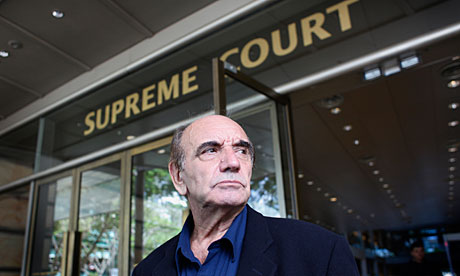By Alyxandra Stanczak
Impunity Watch Reporter, Middle East
TEHRAN, Iran – This past Tuesday, a United Nations general assembly committee accused Iran of serious human rights violations. The violations include torture, persecution of ethnic minorities, pervasive gender inequalities, and violence against women. The resolution was sponsored by the United States, Canada, the European Union, and other western countries. The resolution passed with a vote of 80-44, with 57 abstentions.
Specific human rights violations were addressed in the resolution, and pointed specifically toward acts of flogging, amputation, and stoning. Stoning is a form of punishment in Iran that is codified in the legal code. It is considered by some to be a less cruel punishment than execution because it allows the punished a chance to survive.
Iran’s stoning laws state that a man should be buried up to his waist, but a woman should be buried up to her shoulders. Sometimes, the punishment is stopped if the accused confesses their crime and is able to dig themself out of the hole.
According to the International Campaign for Human Rights, six people were stoned to death between 2006 and 2008, and an additional thirteen remain in prison with stoning as their punishment.
The resolution has faced condemnation from the Iranian government, but also has proponents. Mohamad Javad Larijani, secretary-general for Iran’s high counsil on human rights, stated that this resolution was filled with “fallacies and unverifiable accusations”. Larijani is also recorded in the UN assembly minutes as saying the United States was “the mastermind and main provocateur behind a text that had nothing to do with human rights”. However, Maryam Rajavi, leader of Iran’s main opposition group, stated that this resolution is insufficient to address the human rights concerns in Iran.
Before the resolution was introduced, Iran attempted to block it’s introduction by calling for a vote to take no action. This vote failed 51-91 with 32 abstentions. The last time Iran was faced with a resolution like this was in 2008. At that time, Iran also called for a vote to take no action, where the vote failed but was much closer with 71-81 and 28 abstentions.
The new UN resolution is expected to be passed by the entire 192 member body.
For more information, please see:
ABC News – Iran human rights official draws fire for defense of stoning – 19 November 2010
Al Jazeera – Iran dismisses UN rights criticism – 19 November 2010
CNN – UN committee condemns ‘serious rights violations’ in Iran – 19 November 2010
Canada East – UN committee expresses ‘deep concern’ about flogging and other rights violations in Iran – 18 November 2010
Reuters – UN committee slams Iran over human rights record – 18 November 2010

